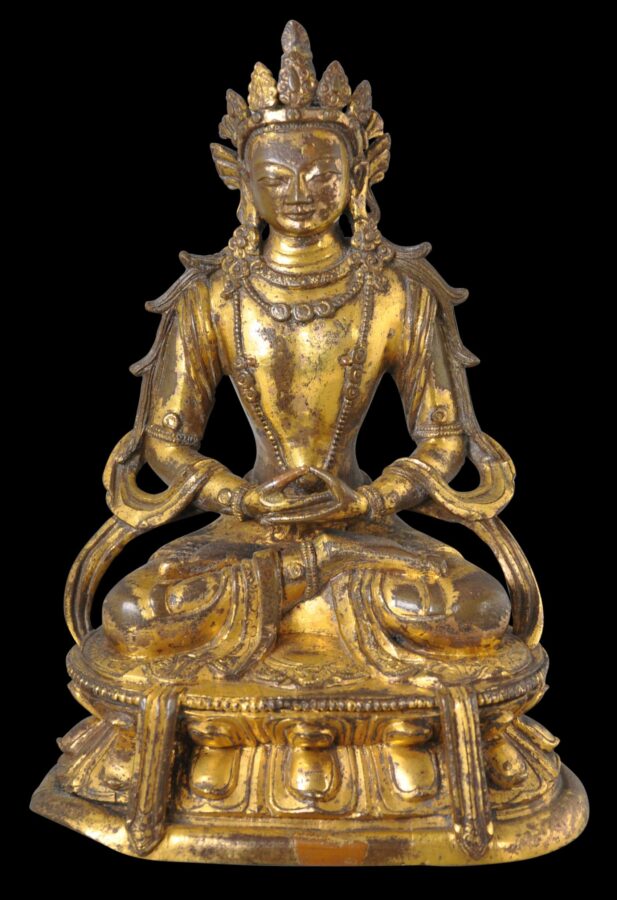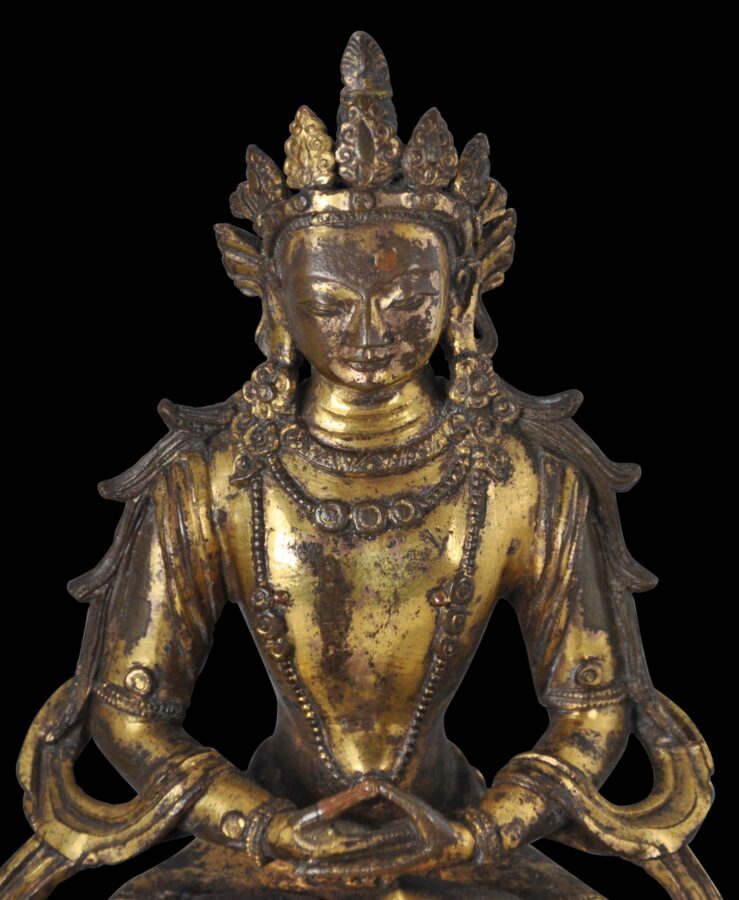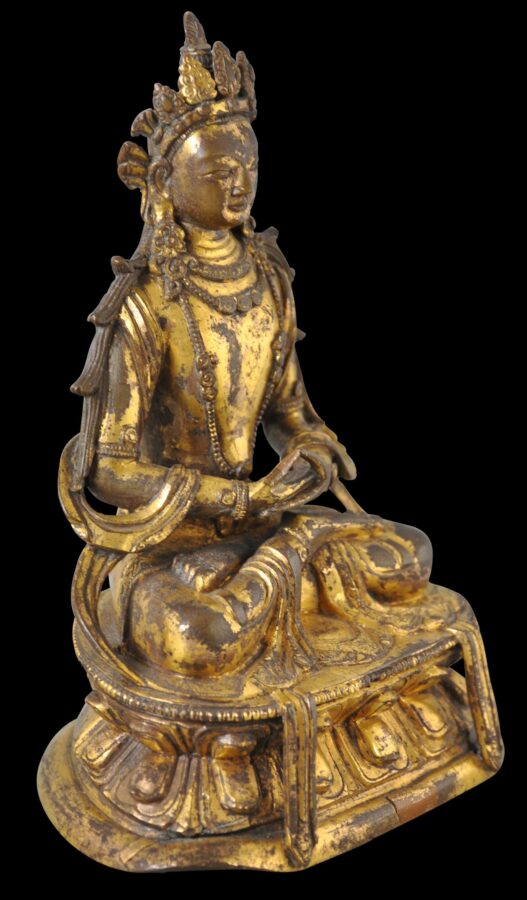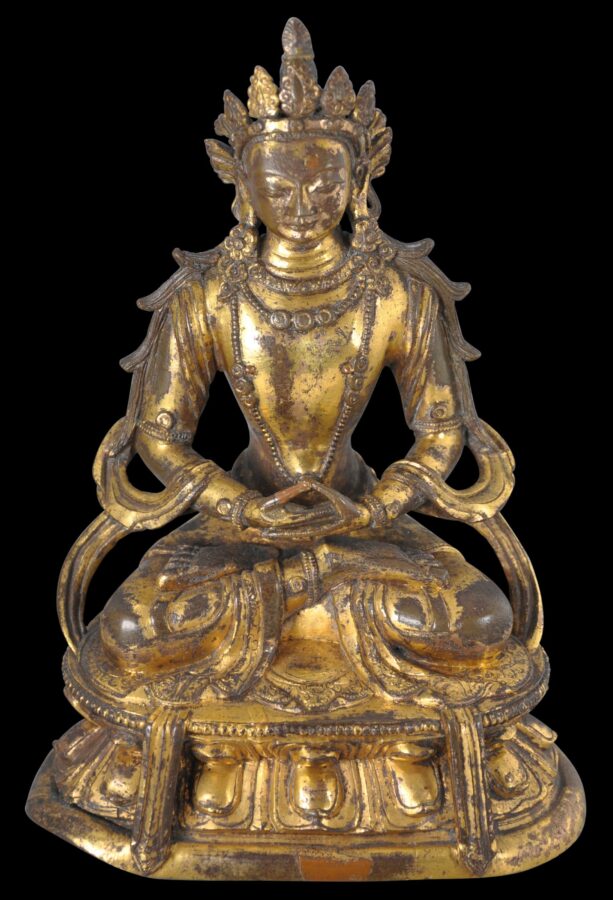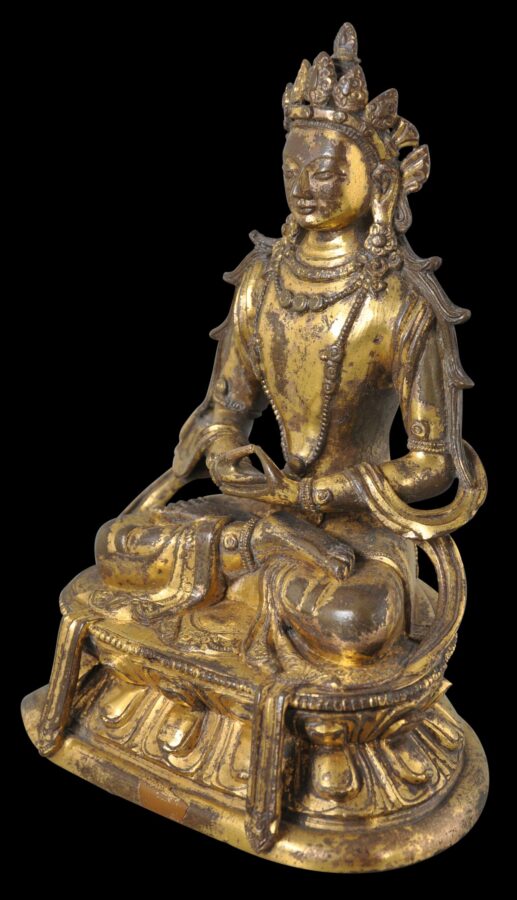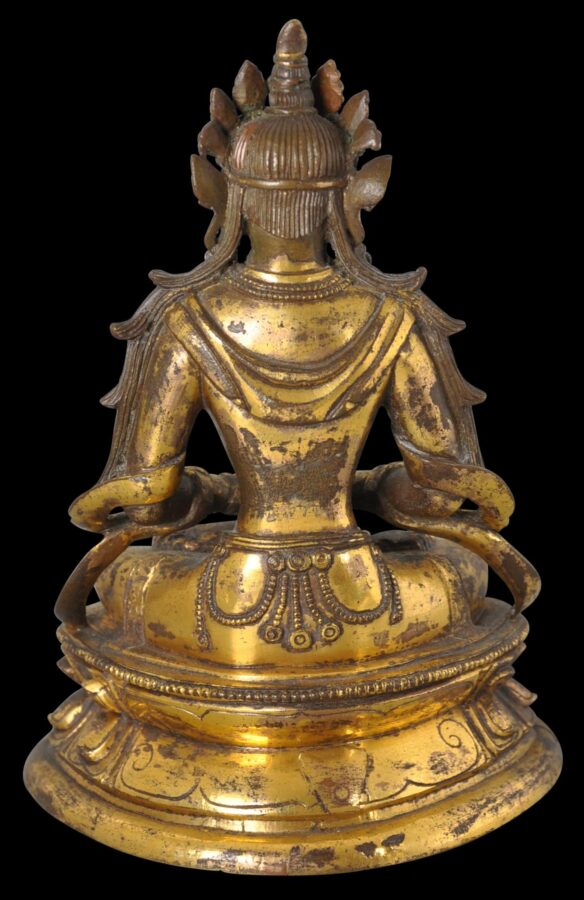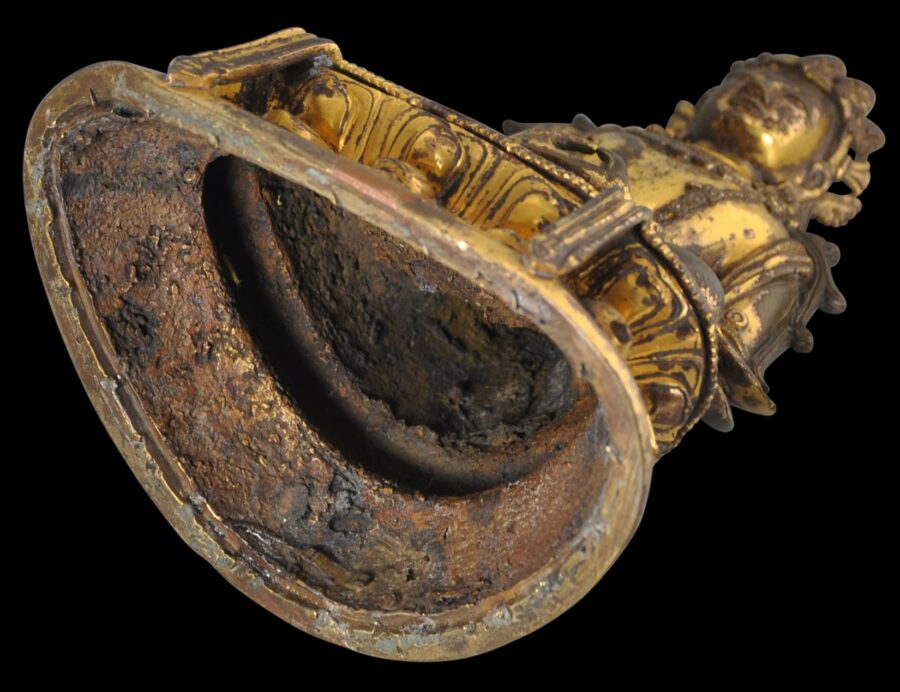Sino-Tibetan Gilt-Bronze Amitayus
Sino-Tibet
18th century
height: 15.9cm, width: 11.5cm, depth: 8.5cm, weight: 1,094g
Provenance
private collection, UK
This gilded bronze figure of Amitayus is seated in padmasana on a double-lotus throne with beaded edging, with hands resting one upon the other in dhyanamudra. The deity wears a billowing dhoti with patterned edging and hems, and is abundantly adorned with beaded jewellery associated with a bodhisattva. The rounded shoulders are framed by long hair tresses that fall down the side of each shoulder and arm, and which are pulled into a high chignon on the top of the head that is surmounted by a flaming jewel. There is a crown that includes five petals. The long tresses are complemented by a flowing sash that flares about the waist of the deity and the ends of which stream over the side of the front of the lotus throne.
The floral earrings and crown point to the Nepalese Newar influence on image production in Eastern Tibet and China.
The image has been cold plated with gold and there is ample ritual wear to the gilding.
Amitayus is considered one of the Five Dhyāni Buddhas (together with Akṣobhya, Amoghasiddhi, Ratnasambhava, and Vairocana) and is associated with the western direction.
See lots 44 and 45, Bonhams New York, ‘Indian, Himalayan & Southeast Asian Art’, September 14, 2015 for related Amitayus figures.
The figure here would have held a vase of immortality in its hands but this is no longer present.
The backing plate to the base is no longer present, and the left front corner of the base has been dented upwards slightly. There is some early restoration to a thumb – almost certainly this occurred in Tibet and is not uncommon with pieces that were highly valued by their owners. The restoration itself has a fine patina. Otherwise, the image is in fine condition.
References
Pal, P., Art from the Himalayas & China: Asian Art at the Norton Simon Museum, Yale University Press, 2003.


